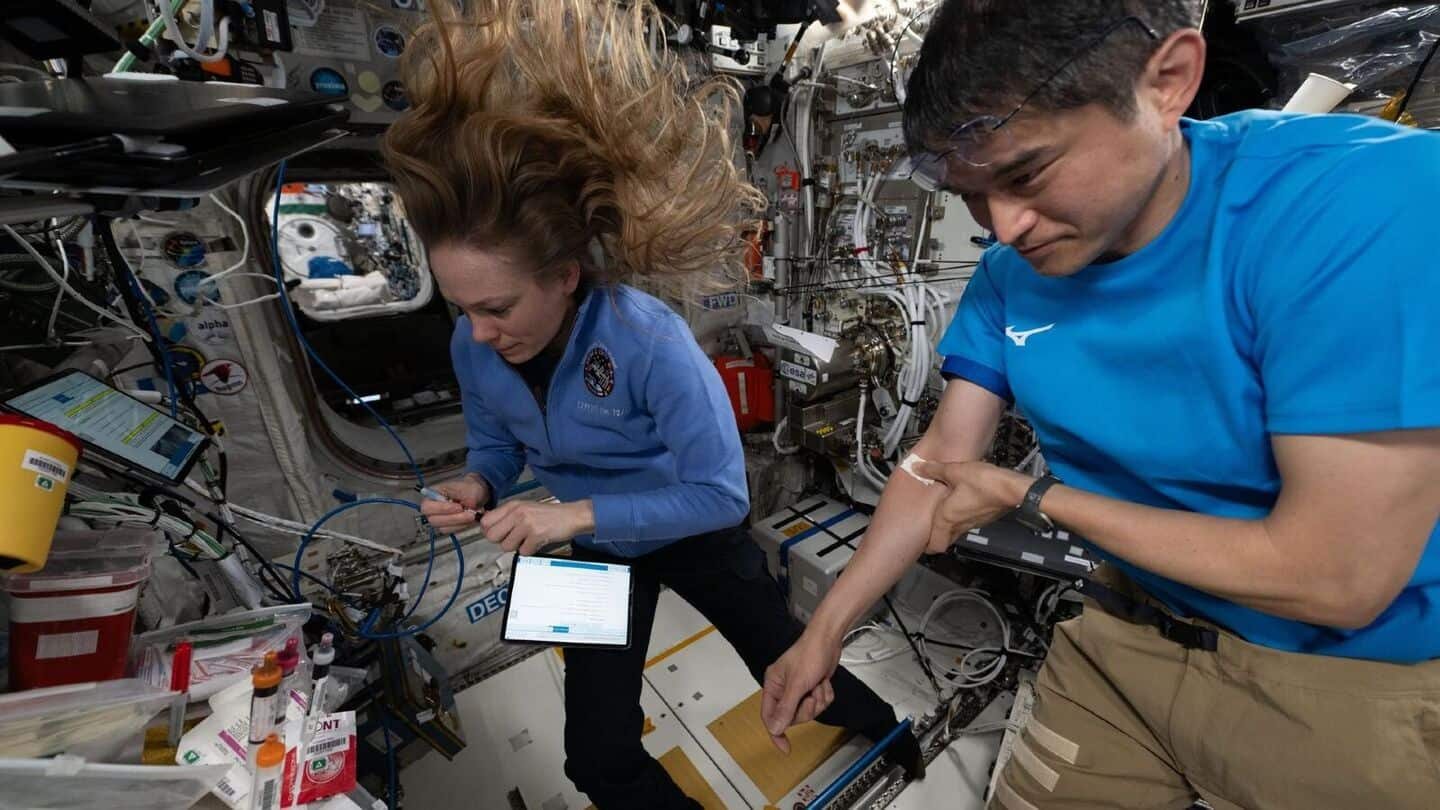
Why blood of some astronauts was collected in space
What's the story
Astronauts aboard the International Space Station (ISS) are conducting critical research to understand how space affects the human body. The latest experiment was conducted by JAXA Commander Takuya Onishi and NASA's Nichole Ayers, who drew blood from their crewmates in a unique study. The goal is to learn more about how long-term spaceflight impacts health, especially as we prepare for future missions to the Moon and Mars.
Difficulties
Drawing blood in microgravity
Collecting blood in a weightless environment isn't as easy as it sounds. The tools and tubes used for the process can float away without gravity to hold them in place. To avoid this, they have to be taped down or held firmly while the procedure is being done. This makes even simple tasks like drawing blood quite complicated in space.
Research focus
Study will look at how space affects cells, immune system
The blood samples collected by Onishi and Ayers will be used in the Immunity Assay study. This research focuses on how space travel affects our cells and immune system. Scientists believe that microgravity, radiation exposure, and altered sleep patterns could weaken our natural defenses. These changes could make astronauts more susceptible to sickness during or after their missions.
Health monitoring
Research will help ensure safer space travel for astronauts
By studying the blood samples, scientists can look for signs of cell stress or weakened immunity. This data can help doctors monitor astronaut health more effectively. If any problems are detected early on, medical teams can quickly adjust their care plans. The research also paves the way for safer space travel on future missions, potentially protecting the crews heading to the Moon or Mars from unforeseen health risks.